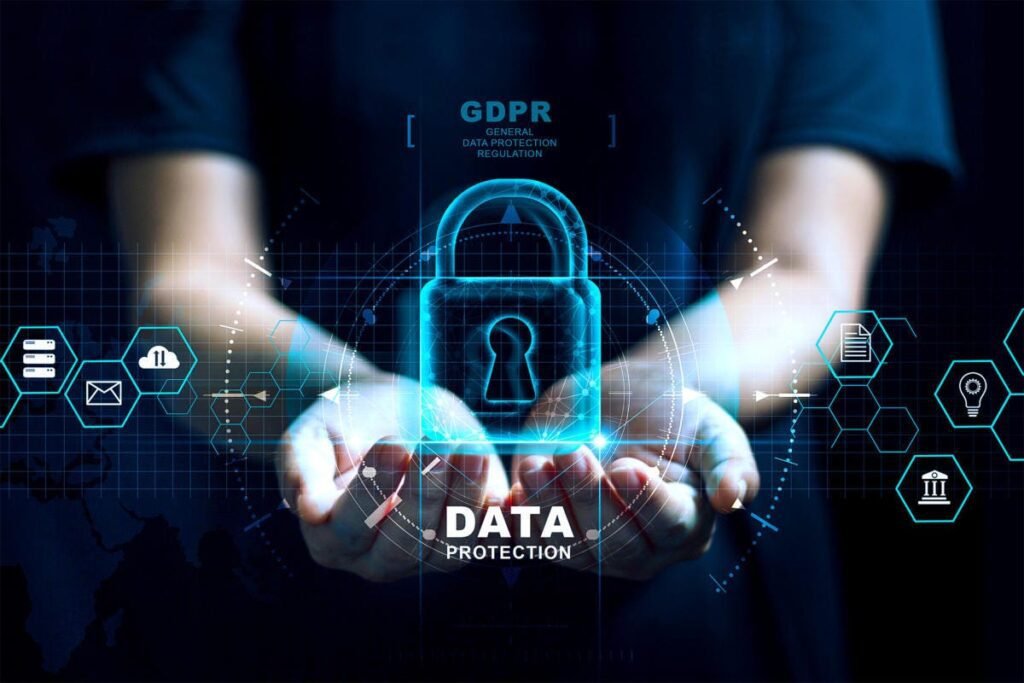
1: Data Encryption and Secure Transmission Protocols
Data encryption is a fundamental cybersecurity measure for protecting student data in edu-tech platforms. This topic explores the importance of implementing robust encryption techniques to safeguard sensitive information during transmission and storage. By encrypting data using industry-standard algorithms and protocols, edu-tech platforms can prevent unauthorized access and ensure the confidentiality and integrity of student records, grades, and personal information. Secure transmission protocols, such as HTTPS and SSL/TLS, further enhance data security by encrypting communication between users and the platform, mitigating the risk of interception or tampering by malicious actors.
2: Role-Based Access Controls and Least Privilege Principle
Implementing role-based access controls (RBAC) and adhering to the least privilege principle are essential strategies for protecting student data from unauthorized access within edu-tech platforms. This topic examines how RBAC enables administrators to assign specific roles and permissions to users based on their responsibilities and access needs, ensuring that only authorized individuals can access sensitive data and perform relevant tasks. Adhering to the least privilege principle limits users’ access rights to the minimum level necessary to perform their duties, reducing the risk of unauthorized data exposure or manipulation. By enforcing RBAC and least privilege principles, edu-tech platforms can minimize the attack surface and mitigate the risk of insider threats or unauthorized data access.
3: Data Minimization and Retention Policies
Data minimization and retention policies are critical for reducing the scope of student data exposure and limiting the potential impact of data breaches or unauthorized access in edu-tech platforms. This topic explores the importance of implementing policies that govern the collection, storage, and retention of student data, ensuring that only necessary information is collected and retained for as long as required. By minimizing the amount of data stored and adhering to retention policies, edu-tech platforms can reduce the risk of data breaches, mitigate compliance risks, and protect student privacy rights. Additionally, data anonymization and pseudonymization techniques can further enhance privacy protections by dissociating sensitive information from individual identities, minimizing the risk of re-identification in the event of a data breach.
4: Secure Authentication Mechanisms and Multi-Factor Authentication (MFA)
Implementing secure authentication mechanisms is essential for preventing unauthorized access to student accounts and protecting sensitive data in edu-tech platforms. This topic examines the importance of implementing strong authentication methods, such as passwords, biometrics, or hardware tokens, to verify users’ identities and prevent credential-based attacks. Multi-factor authentication (MFA) adds an extra layer of security by requiring users to provide multiple forms of verification, such as a password and a one-time code sent to their mobile device, before gaining access to their accounts. By deploying secure authentication mechanisms and MFA, edu-tech platforms can significantly reduce the risk of unauthorized access and enhance overall security posture, safeguarding student data from compromise or misuse.
5: Continuous Monitoring and Threat Detection
Continuous monitoring and threat detection capabilities are essential for identifying and responding to potential security incidents or suspicious activities in real-time within edu-tech platforms. This topic explores the importance of implementing robust monitoring tools and security controls to monitor user activities, network traffic, and system behavior for signs of anomalous or malicious behavior. By leveraging intrusion detection systems (IDS), security information and event management (SIEM) solutions, and machine learning algorithms, edu-tech platforms can detect and alert administrators to potential security threats, such as unauthorized access attempts, malware infections, or data exfiltration attempts. Timely detection and response to security incidents enable edu-tech platforms to mitigate risks, contain threats, and prevent data breaches or disruptions to student learning activities.
6: Regular Security Audits and Compliance Assessments
Regular security audits and compliance assessments are essential for evaluating the effectiveness of cybersecurity controls and ensuring that edu-tech platforms adhere to relevant regulations and industry standards for protecting student data. This topic examines the importance of conducting periodic audits and assessments to identify vulnerabilities, assess risks, and validate compliance with data protection laws, such as the Family Educational Rights and Privacy Act (FERPA) or the General Data Protection Regulation (GDPR). By engaging third-party auditors or security experts to perform comprehensive assessments, edu-tech platforms can identify gaps in security controls, address compliance deficiencies, and implement remediation measures to strengthen data protection practices. Additionally, regular audits demonstrate a commitment to transparency, accountability, and continuous improvement in safeguarding student data privacy and security within edu-tech platforms.

